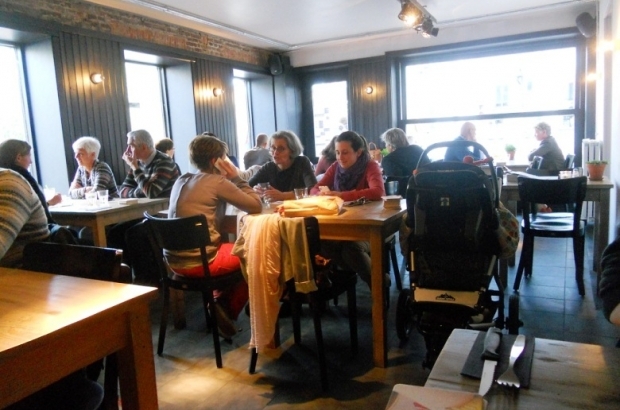- Daily & Weekly newsletters
- Buy & download The Bulletin
- Comment on our articles
Belgians eating in restaurants less often, survey shows
Two out of three Belgians go to a restaurant at least once a month, but they are dining out less than they did five years ago, a new study has found.
The latest "restaurant barometer" by payment platform Edenred asked 4,099 Belgians on their restaurant habits this year. It covers “real” restaurants - not chip shops, sandwich shops, work canteens or take-aways.
The survey found that Belgians have a lower budget to spend on dining out, citing a greater need to watch their spending. Some 6% of Belgians eat at a restaurant only once a year or not at all.
With rising inflation and restaurant prices, 36% of Belgians say their budget to eat out is less than it was five years ago, while 45% say they are prepared to pay the same amount as before.
Their tastes, however, remain the same. People in Belgium prefer Belgian and French dishes, followed by Italian – the same results as for 2019.
Edenred Belgium’s managing director Olivier Bouquet said the results about restaurant frequentation were worrying. “With the cost of living that is becoming more expensive, the price of a basket full of shopping is increasing and so that provokes a drop in the frequency of restaurant-going," he said.
He noted also that some interviewees said they did not have enough time to be enjoy a full meal in a restaurant.
Belgians still spend about €40 per person which is “a considerable budget,” Bouquet added. And while 11% pay less than €30 on average, per person, per visit, 14% will pay considerably more – around €75 per person.
Indeed, while Belgians do not frequent restaurants so often this year, when they do, they want to make the most of it. Half of them order two courses – a starter and a main or a main and a dessert. Slightly less than a quarter will just take one dish, while another quarter will choose three or even four courses.
And if diners’ eyes are bigger than their stomachs, particularly with financial considerations or just the wish not to waste food, some 43% of people interviewed said they ask to take leftovers home with them, while around a third say that they would never do this.
More than one in five restaurant-goers do not order wine with a meal, and alcohol in general, again often a budgetary choice.
Luc Marchal, president of Wallonia’s Horeca Federation, said many restaurants were in difficulty.
With the rise in social media and apps, unsurprisingly, more than half of respondents (54%) said they looked for online restaurant reviews before stepping out. “Even if we go less to restaurants, we research them well, we want it to be a good experience,” Bouquet said.
And according to the the survey, the type of food rather than the cost influences restaurant choice the most at 42%, followed by the price (24%) and then location (20%).
Belgians prefer to go to classic restaurants (32%), as well as brasseries, grills or mussel restaurants, followed by pizzerias (10%), burger joints (6%) and gastronomic Michelin-starred restaurants (5%).
Italian cooking features highly in Belgian’s food preferences too – coming second after French or Belgian cuisine (55%), with Asian dining in third place (12%).
The results of the Edenred study come after Belgian trade and services federation Comeos found in November 2023 that Belgians are less likely to eat out in restaurants – some 43.5% compared to 51.3% in pre-Covid 2019 days.
In contrast, the market share of the fast food sector rose over the same period – from 9.4% to 17.1%. Comeos head of economic affairs Wim Van Edom said that the change stemmed from the soaring food prices in 2021 and 2022: “As their purchasing power is under pressure, consumers are going less to traditional restaurants and more to fast food outlets, because they are cheaper.”

















